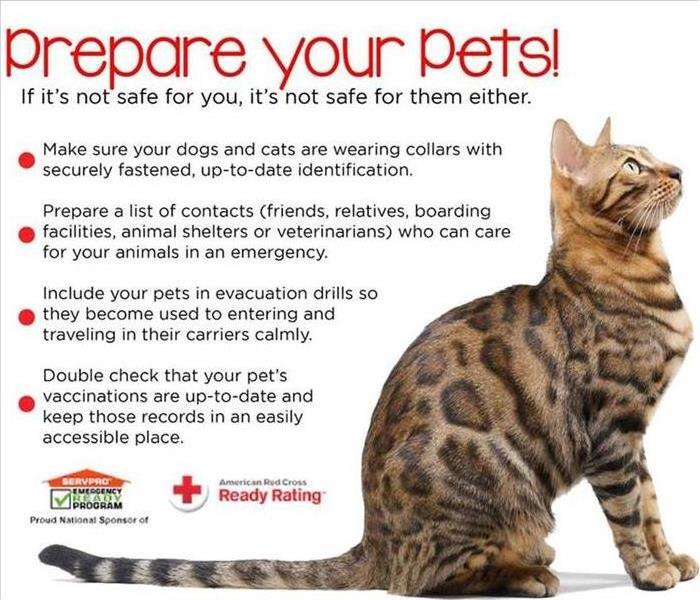Ohana Means family, and Family means no one gets left behind
12/12/2019 (Permalink)
Pets are just as important as any other family member. So why would you not want to make them a part of your preparedness plan? There are several things you can do to make sure they stay safe as well.
Pet emergency kit:
Food: at least 3 days worth of food in an air tight, and waterproof container
Water: at least 3 days of water specifically for your pets.
Medicines and important documents:
Registration information, adoption paperwork, vaccination records. Talk to your veterinarian about micro-chipping your pet.
First Aid Kit:
Cotton Bandage rolls, bandage tape and scissors, antibiotic, flea and tick preventatives, latex gloves, isopropyl alcohol and saline solution. Including a pet first aid reference book is very helpful as well!
Collar or Harness with ID
A picture of you and your pet together:
If you become separated a picture of you two together will help to document your ownership. Add species, breed, age, sex, color, and distinguishing characteristics.
Familiar items:
Familiar items such as treats, toys, and bedding can help reduce stress on your pet.
Evacuations:
While practicing fire escape or evacuation plans be sure to include your pet also! If an evacuation happens, don't leave pets behind as they can lost or injured.
Identification:
Micro-chipping pets is a great way to locate them. Most veterinary clinics and shelters have scanner that will read the microchip information to help locate a lost pets owners.
Be sure to take your four-legged friends into consideration when planning for emergencies. visit ready.gov/animals for further tips on how to keep your furry friends close and safe in the event of a disaster or emergency.

 24/7 Emergency Service
24/7 Emergency Service
